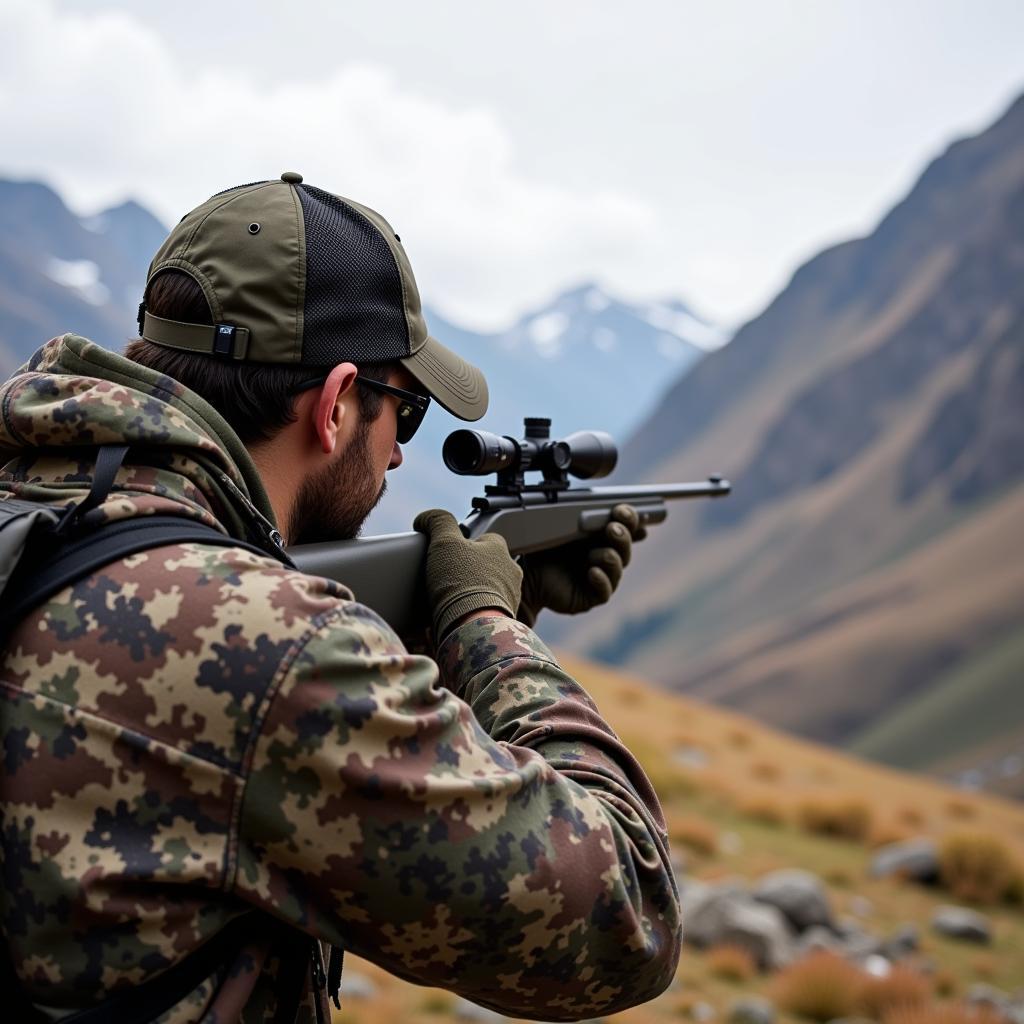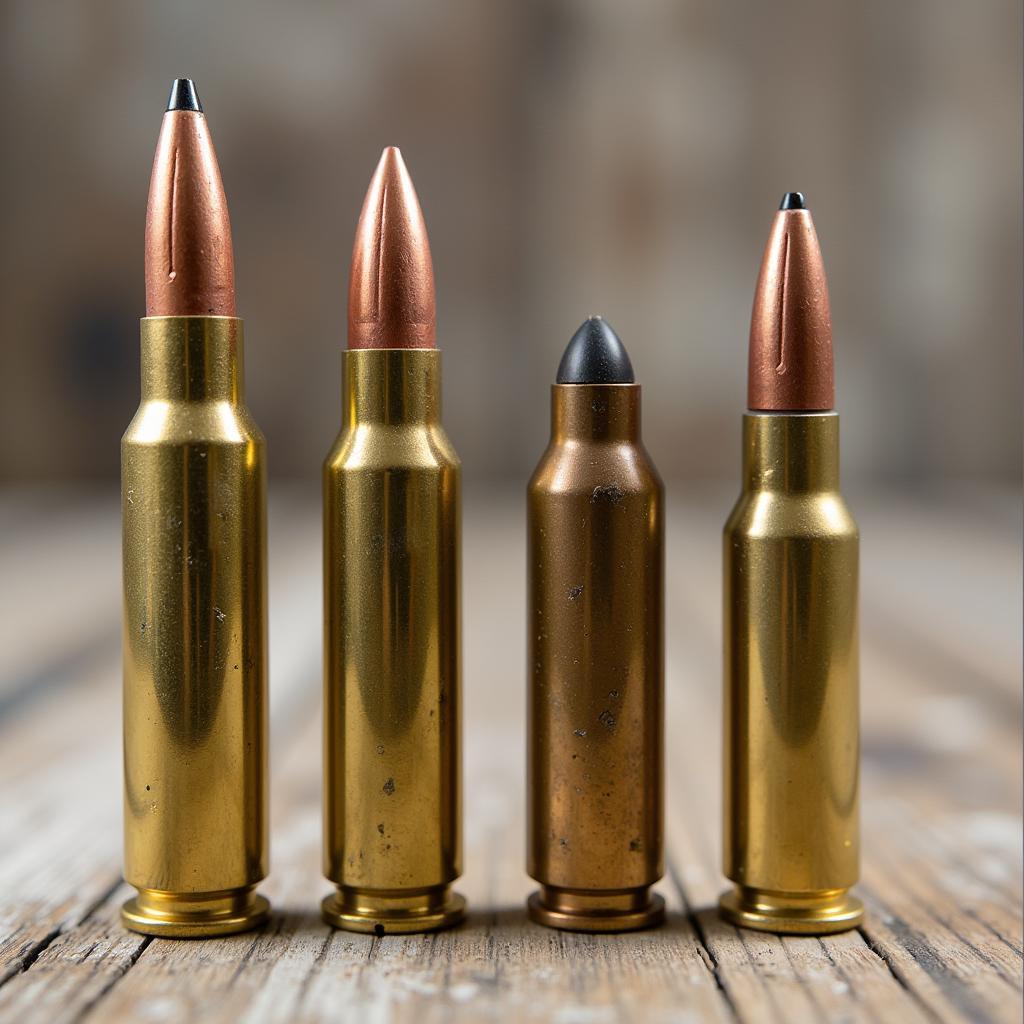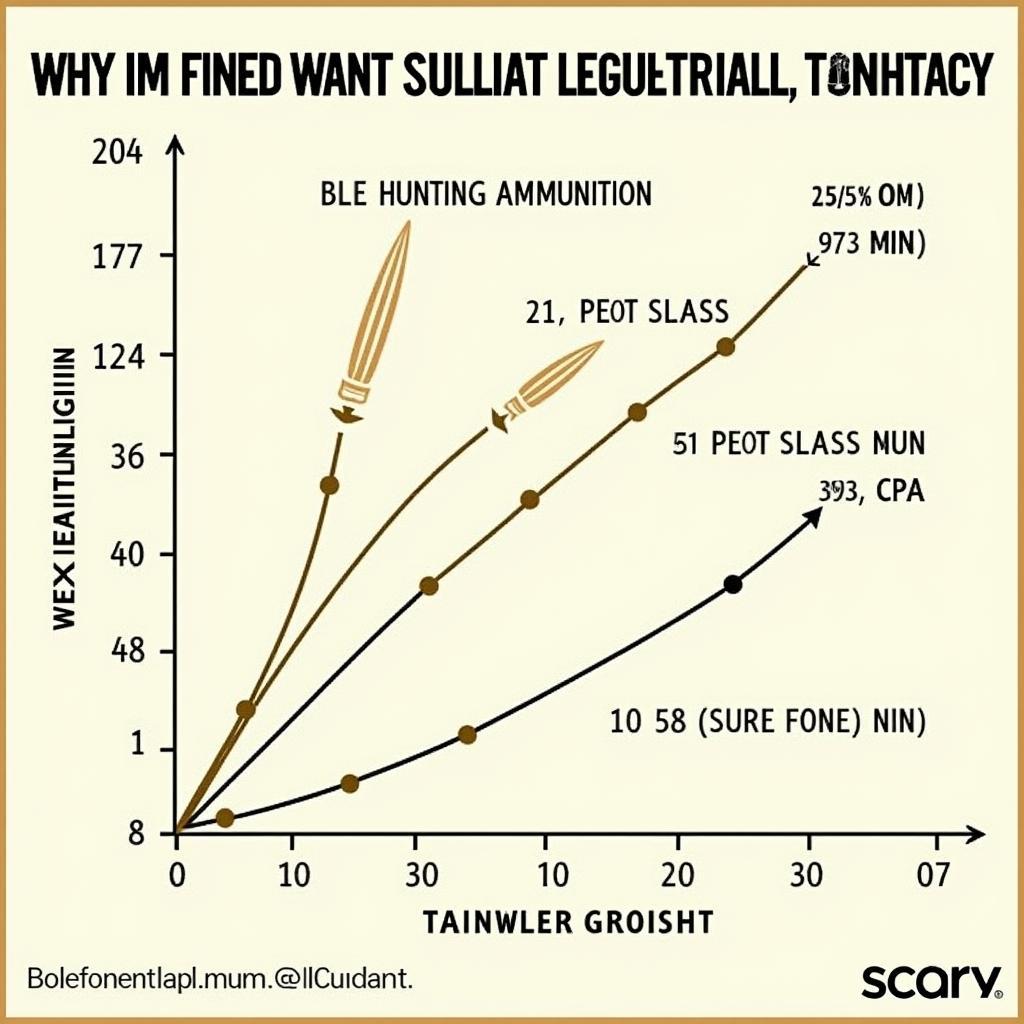Wild horse ammo might sound like an unusual topic. It’s important to note that while wild horses are protected in the United States, ethical hunting practices apply to other ungulates (hoofed mammals) often found in similar habitats. This article focuses on choosing the best ammunition for a safe and humane harvest, applicable to a variety of hunting scenarios.
Selecting the right hunting ammunition goes beyond just choosing a brand. Factors like bullet type, caliber, and even environmental conditions play a crucial role in ensuring a clean, ethical, and successful hunt.
Understanding Your Prey and Hunting Environment
Whether you’re hunting deer, elk, or other large game, understanding their anatomy and behavior is paramount when choosing the right ammunition.
- Animal Size and Weight: Larger animals require bullets with greater penetration and energy transfer to ensure a quick and humane kill.
- Distance: Shooting distances vary greatly in hunting situations. Consider the effective range of your rifle and the typical distances you’ll be engaging your target.
- Terrain and Weather: Dense brush may require different bullet performance compared to open plains. Similarly, extreme temperatures can affect ammunition performance.
 hunter-in-mountainous-terrain
hunter-in-mountainous-terrain
Key Ammo Considerations: Caliber, Bullet Type, and Grain
These are the core elements to understand when choosing hunting ammunition:
- Caliber: This refers to the diameter of the bullet. Common hunting calibers include .270 Winchester, .30-06 Springfield, and .300 Winchester Magnum, among others. The right caliber depends on the size and resilience of your target game.
- Bullet Type: There are various bullet types, each designed for specific purposes:
- Soft Point: Expand on impact, transferring energy quickly for ethical kills. Ideal for medium-sized game.
- Hollow Point: Similar to soft point but with a larger cavity, designed for maximum expansion and energy dump. Suitable for varmints and predators.
- Bonded Core: Engineered for deep penetration, these bullets hold together well, making them effective on larger, tougher game.
- Ballistic Tip: Known for their accuracy and flat trajectories, these bullets are suitable for long-range hunting.
 different-types-of-hunting-bullets
different-types-of-hunting-bullets
- Grain: This measures the weight of the bullet. Heavier bullets retain more energy downrange but may have a more arched trajectory. Lighter bullets travel faster but can be more susceptible to wind drift.
Wild Horse Ammo Reviews: What to Look For
It’s crucial to emphasize again that harming wild horses is illegal. However, when researching ammunition for other game, consider these factors:
- Accuracy: Consistent shot placement is crucial for an ethical harvest. Look for reviews that mention accuracy and groupings at various distances.
- Terminal Performance: Reviews and ballistic gel tests can provide insights into how well a particular ammo performs upon impact, including expansion, penetration, and energy transfer.
- Brand Reputation: Choose ammunition from reputable manufacturers known for their quality control and consistent performance.
 ballistics-chart-for-hunting-ammunition
ballistics-chart-for-hunting-ammunition
Ethical Considerations: Beyond the Ammo
- Shot Placement: No amount of “knock-down power” can replace accurate shot placement. Practice diligently and know your limits to ensure a clean kill.
- Conservation: Hunting regulations are in place to manage wildlife populations sustainably. Always follow local laws and hunt responsibly.
- Respect for the Animal: Treat every harvest with respect. Practice ethical field dressing and utilize the animal to the best of your ability.
Choosing the Right Ammo: A Personal Journey
Finding the perfect ammunition for your hunting needs is a process of research, trial, and experience. Talk to experienced hunters, visit reputable gun shops, and experiment at the range to discover what works best for your rifle, your hunting style, and your target game. Remember, ethical hunting relies on making informed decisions, and ammunition choice plays a vital role in that equation.
FAQs about Hunting Ammunition
1. What is the best caliber for beginners? There is no single “best” caliber. However, calibers like .243 Winchester or .270 Winchester offer a good balance of power and manageable recoil, making them suitable for new hunters.
2. How do I sight in my rifle? Sighting in ensures your bullet hits where you aim. It involves adjusting your rifle’s scope at a known distance, typically 100 yards. Seek guidance from experienced shooters or consult online resources for detailed instructions.
3. What is the difference between muzzle velocity and downrange velocity? Muzzle velocity is the speed of the bullet as it leaves the barrel. Downrange velocity is the bullet’s speed at a given distance, which decreases due to air resistance.
4. How do I store ammunition safely? Store ammo in a cool, dry place, away from direct sunlight and extreme temperatures. A locked container is recommended for safety.
5. Can I use the same ammo for different game animals? It depends on the size and resilience of the animal. A bullet suitable for deer may not be appropriate for elk. Always consult caliber and ammunition recommendations for your specific target game.
Need More Help?
For all your hunting and outdoor needs, contact Justus Horses USA at 0772127271 or email [email protected]. We’re located at QGM2+WX2, Vị Trung, Vị Thuỷ, Hậu Giang, Việt Nam, and our dedicated team is available 24/7 to assist you.